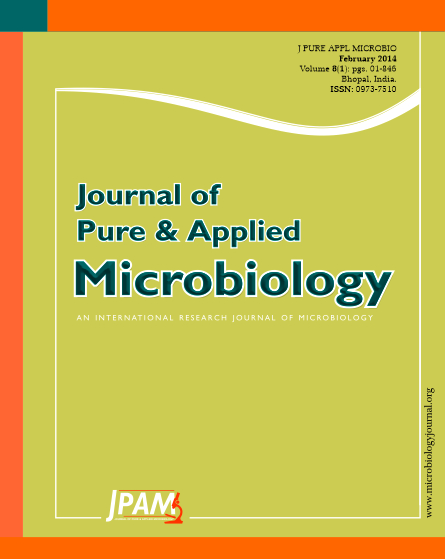The present study was conducted to isolate, identify, characterize and to determine the enzymatic activities of the thermophiles from Atri hot spring of odisha. The optimal temperature for growth of these isolates was 55 °C and the optimal pH was 8. These bacterial cells were Gram positive rods and endospore forming. All the strains were amylase, catalase and oxidase positive but gelatinase and caseinase negative but isolate A1 showed the best amylase producing. The phenotypic characterization of those isolates was confirmed by genotypic method using 16S rDNA sequence analysis. Maximal homology of isolate A1 to genus Geobacillus was observed. Isolate A1 showed 96% homology with Geobacillus sp. WCH 70 (Accession no. NC 012793.1). Therefore, 16S rDNA gene sequence analysis can be considered as a valuable genotypic tool for the identification and characterization of this thermophilic bacterium at genus level. Moreover, enzymatic products of these isolates could receive considerable attention due to their potential applications in biotechnology.
Thermophiles, Enzymes, Hot spring, 16S rDNA
© The Author(s) 2014. Open Access. This article is distributed under the terms of the Creative Commons Attribution 4.0 International License which permits unrestricted use, sharing, distribution, and reproduction in any medium, provided you give appropriate credit to the original author(s) and the source, provide a link to the Creative Commons license, and indicate if changes were made.


